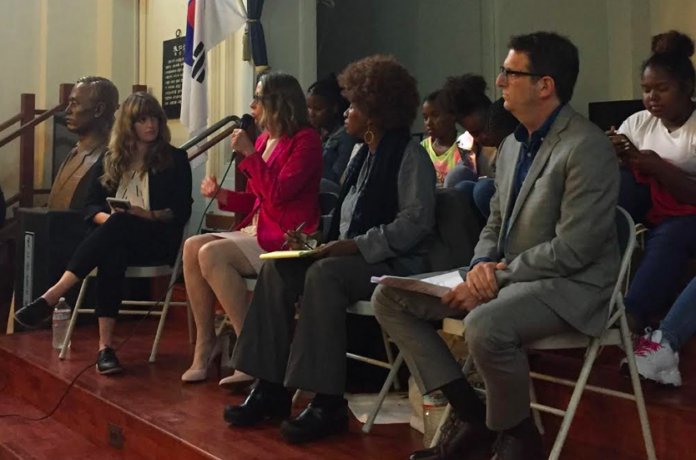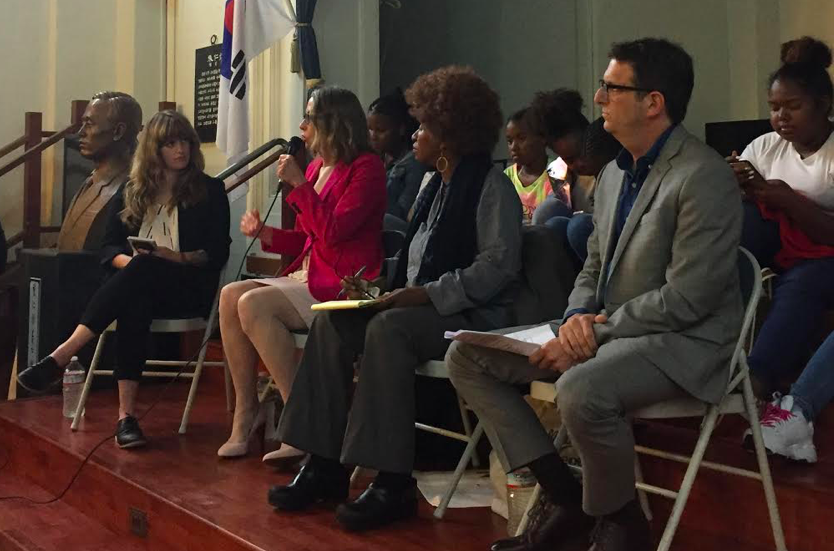
It’s not surprising, given the political landscape in San Francisco, that housing and homelessness were among the most contentious issues at Friday’s District 5 supervisor debate, as well as Sen. Scott Wiener’s controversial SB 50 legislation.
The debate showed some clear policy difference between the two leading candidates.

Sup. Vallie Brown framed her lukewarm support of Sen. Scott Wiener’s SB 50 as saying she was only one of two supervisors “to not say no” to the bill as written. The other nine supervisors all voted in April to oppose the housing deregulation legislation, which would upzone large portions of the state near public transportation, including virtually all of San Francisco.
“As a supervisor and as an activist, you need to work with people,” Brown said. “You need to make sure to say, Senator Wiener, let us work with you, let us tell you what the situation is that we don’t like.”
Candidate Dean Preston, on the other hand, said he completely opposes the bill in all forms.
“I am not interested in enabling or sitting down with Senator Scott Wiener so he can gentrify our neighborhoods with bills written by developers, for developers, that are going to ruin the fabric of this city,” he said. “SB 50 would upzone the entire city without increasing the rate of affordable housing that developers have to provide? Are you kidding me?”
The housing development in the district at Divisadero and Oak streets – and the number of affordable housing units it includes – also featured prominently.
“I got 20 percent (affordable housing) for Divisadero. That’s the highest in the city,” Brown said, adding that nearly half of the affordable units have two bedrooms that families earning $60,000 a year can qualify for.
But Preston shot back.
“The idea that 20 percent is the highest in the city is pure fiction,” Preston challenged, and read off the names of other developments with much higher percentages, including Pier 70, Mission Rock, 65 Ocean, and the 5M project.
“If you want someone to fight to get the most for the community, you don’t have the person in office endorsed by the developers,” he said. “Even the ordinance that the supervisor is talking about [for Divisadero], the developers didn’t even oppose it. You have to tangle with them. You can’t always please them.”
After the debate, Brown qualified her statement by saying it only applied to developments on private land, and that most of the developments Preston cited are on public land.
“With public properties, you can do 40 to 50 percent (affordable housing),” she told 48hills. “The [Divisadero] property we’re talking about was a private property. There’s no way you can get private developers to do the same thing we do on public property like the pier. That’s just the way it is.”
Brown admitted the 5M site is on private property, but said it was an exception because it had been owned for 80 years by the same property owner.
“But when someone just buys a property, or they had it for (only) a few years, it just doesn’t work. You can’t get that much affordability – the developer will walk away,” she said, adding that 20 percent was the most she believed the Divisadero developers would have agreed to.
Preston told 48hills he completely disagreed, and said there was “no basis for saying the (Divisadero) developers couldn’t have done more than that.”
Even if Brown’s claim that 20 percent is the highest in the city was amended to only include developments on private property, Preston said it would still be “patently false.” He cited the 915 Cayuga St project in the Excelsior District which was approved in April with 50 percent affordable housing.

